第36章 THE METHOD OF SCIENTIFIC INVESTIGATION [86](1)
The method of scientific investigation is nothing but the expression of the necessary mode of working of the human mind. It is simply the mode at which all phenomena are reasoned about, rendered precise and exact. There is no more difference, but there is just the same kind of difference, between the mental operations of a man of science and those of an ordinary person, as there is between the operations and methods of a baker or of a butcher weighing out his goods in common scales, and the operations of a chemist in performing a difficult and complex analysis by means of his balance and finely graduated weights. It is not that the action of the scales in the one case, and the balance in the other, differ in the principles of their construction or manner of working; but the beam of one is set on an infinitely finer axis than the other, and of course turns by the addition of a much smaller weight.
You will understand this better, perhaps, if I give you some familiar example. You have all heard it repeated, I dare say, that men of science work by means of induction and deduction, and that by the help of these operations, they, in a sort of sense, wring from Nature certain other things, which are called natural laws, and causes, and that out of these, by some cunning skill of their own, they build up hypotheses and theories. And it is imagined by many, that the operations of the common mind can be by no means compared with these processes, and that they have to be acquired by a sort of special apprenticeship to the craft. To hear all these large words, you would think that the mind of a man of science must be constituted differently from that of his fellow men; but if you will not be frightened by terms, you will discover that you are quite wrong, and that all these terrible apparatus [87] are being used by yourselves every day and every hour of your lives.
There is a well-known incident in one of Moliere's plays,[88]
where the author makes the hero express unbounded delight on being told that he had been talking prose during the whole of his life.
In the same way, I trust, that you will take comfort, and be delighted with yourselves, on the discovery that you have been acting on the principles of inductive and deductive philosophy during the same period. Probably there is not one here who has not in the course of the day had occasion to set in motion a complex train of reasoning, of the very same kind, though differing of course in degree, as that which a scientific man goes through in tracing the causes of natural phenomena.
A very trivial circumstance will serve to exemplify this. Suppose you go into a fruiterer's shop, wanting an apple,--you take up one, and, on biting it, you find it is sour; you look at it, and see that it is hard and green. You take up another one, and that too is hard, green, and sour. The shopman offers you a third; but, before biting it, you examine it, and find that it is hard and green, and you immediately say that you will not have it, as it must be sour, like those that you have already tried.